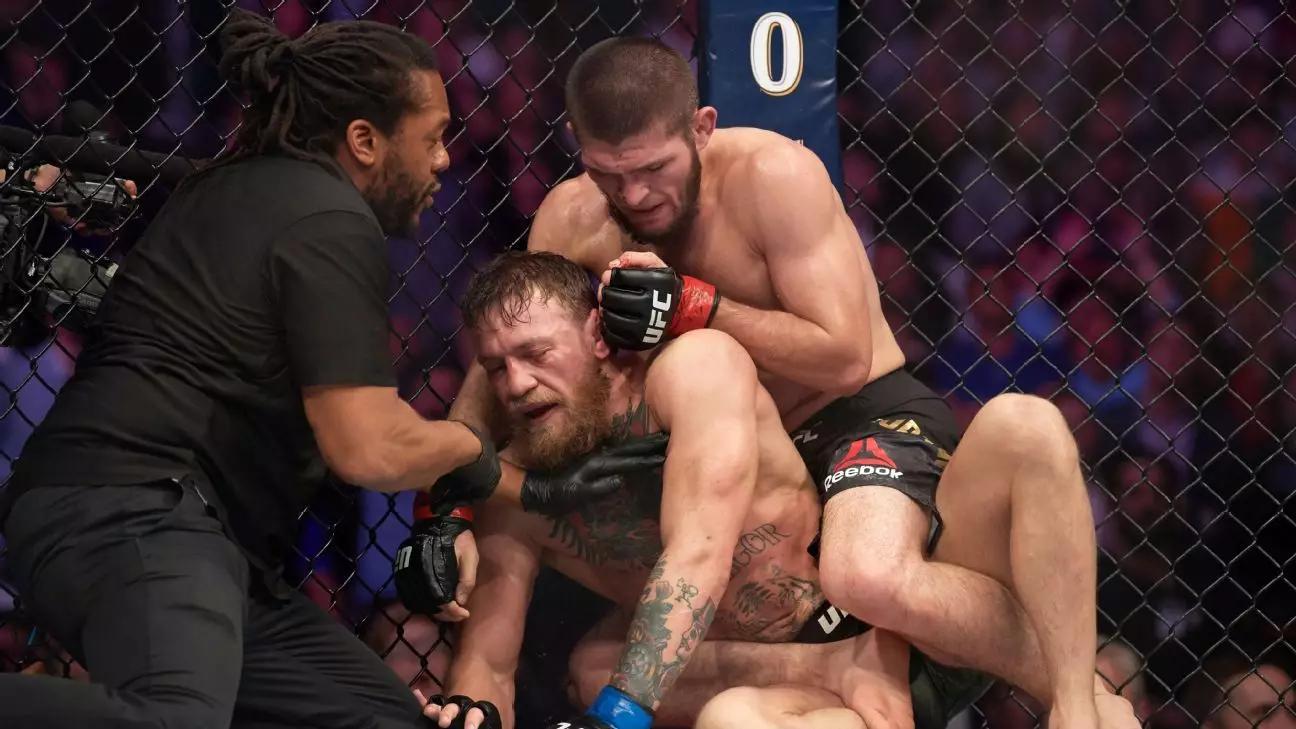Khabib Nurmagomedov’s career in mixed martial arts is legendary, rooted in relentless dominance and fiercely personal rivalries. His 2018 bout with Conor McGregor captured global attention, not only for its intense competition but also for the chaos that followed, including Nurmagomedov’s shocking post-fight brawl outside the Octagon. Since retiring undefeated in 2020, Nurmagomedov’s reputation has solidified as a disciplined, respectful champion—an image that starkly contrasts with the reckless public persona McGregor has often exhibited. Their rivalry, characterized by ferocity on the mat and personal jabs outside it, once cemented each as a symbol of contrasting philosophies within MMA. Yet, Nurmagomedov’s recent statements reveal a surprising shift towards compassion and hope, indicating a deeper understanding of the human capacity for change.
Challenging Preconceived Notions of Redemption
Nurmagomedov’s recent comments about McGregor, urging him to alter his lifestyle and seek redemption, challenge the longstanding narrative of animosity that has long colored their relationship. Historically, Nurmagomedov was vocal about his disdain for McGregor’s antics, criticizing him for disrespecting others and flouting societal norms. Now, he emphasizes that “Allah always gives the chance to come back,” suggesting that transformation is not only possible but also within McGregor’s reach. This perspective contradicts the hardened fighter persona Nurmagomedov once projected, highlighting a belief in mercy and renewal. It’s a reminder that even those hardened by competition can cultivate compassion, viewing their rivals not just as opponents but as individuals deserving of second chances. This approach also elevates the conversation about accountability—asserting that genuine change can emerge from acknowledgment of past faults.
A Stirring Call for Self-Improvement in a Troubled Figure
Nurmagomedov’s appeal to McGregor is rooted in a pragmatic belief that personal growth is essential for lasting peace—not just for him but for others influenced by his actions. McGregor’s recent legal troubles, including a civil sexual assault case, cast a shadow over his career and legacy. Nurmagomedov’s evolution in tone suggests that he no longer sees McGregor solely through the lens of past battles and disputes but recognizes the importance of redemption. The UFC legend posits that change is always possible, even after missteps that seem irrevocable. His words serve as an encouraging reminder that individuals can reshape their narratives, regardless of their reputation or mistakes. Nurmagomedov’s message is a rare display of forgiveness in a sport often driven by rivalry and personal grudges, proposing that true strength lies in the ability to forgive and hope for better futures.
The Power of Transformation and Humanity’s Capacity to Rebuild
What makes Nurmagomedov’s stance compelling is the broader implication it holds for society—highlighting that redemption is a universal possibility. In a world where fame often amplifies flaws and personal lives become battlegrounds, Nurmagomedov’s call to McGregor underscores an optimistic truth: anyone grappling with their demons can find a path back to integrity. His acknowledgment that “if you don’t change, it will be punishment all your life” is not a condemnation but an invitation to self-awareness and growth. As McGregor prepares for a possible return to UFC, Nurmagomedov’s words serve as a pivotal reminder that athletes, like all humans, are imperfect but capable of profound transformation. Recognizing that even the most fiery rivals can become allies in the pursuit of redemption hints at a deeper understanding of resilience and forgiveness that transcends MMA.


Leave a Reply